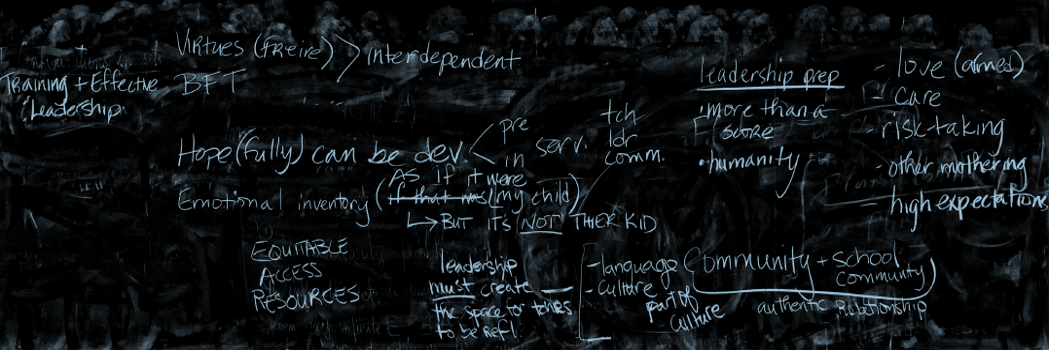Whereas last week’s articles left me feeling a bit deflated, this week’s articles reminded me that there are teachers and school leaders – most often Black women – who are working to change educational systems. The reading that I connected with most deeply was the Bass article, When care trumps justice: the operationalization of Black feminist caring in educational leadership. Bass’ hopeful tone stemmed from the obvious respect that she seems to have towards her participants and the work that they do. Bass describes bringing together her participants as a forum and writes that “the participants appeared to take comfort in knowing there were other women who employed an ethic of care in their leadership and decision-making…” (78, 2012). As such, through only a brief window, Bass’ scholarship created a sense of community and comradery that made her participants feel cared for and supported, something that feels rare in academia.
As someone interested in how teachers become more empowered, I was especially interested in the themes of risk, resistance and spirituality that connected these readings. As I have thought about this topic previously, it was only the sense of spirituality that took a different direction than I had considered before. Perhaps what the authors spoke about as spirituality, I have attributed more to a feeling of connectedness and deep understanding that one’s actions are important and will make a difference. As stated in some of the readings, this north star, when you know you are acting with integrity, love and the potential to have real impact, is more empathetic than moral, more auxiliary than performative. I had never connected this feeling to spirituality and even less to religion previously, but now I will consider how these ideas are similar and different, and why I had been so reluctant to think of it in such a way previously.
Lastly, though it was mentioned briefly in some readings, I was a little disheartened that the emotional toll that this work takes on educators and educator leaders was all but ignored. This is often the case with Black women. We are expected to stoically take on the ills of society without feeling the drain ourselves. Many of these educators spoke about the risks that they took to fight for their students as a badge of honor, but who is looking out for them? How long can women continue to focus only on caring for others? Mom needs a nap.




So I’m wondering, how does spirituality connect to your teaching pedagogy? Also, have you ever internalized this feeling spoken of in the works of “other-mothering” when you’re in the classroom? How are you raising awareness to and potentially confusing the empathic gaps that you’re exposed to in your works space? these are not questions I’m asking you to answer. These are questions I thought of when reading your response. For some reason, I’m always want to pivot to action. I think of Freedom Dreams and their connection to political action, and I wonder what Freedom Dream can we concretize?